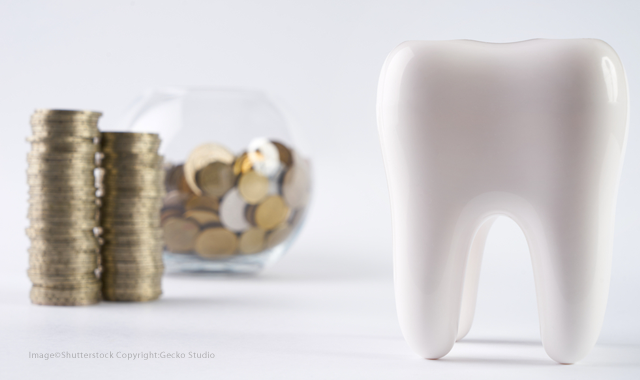How much did you really pay for your practice?
When it comes time to think about taxes and other factors, your final acquisition costs could be quite a bit different.

It’s easy enough to think that if you’re paying $500,000 to acquire a dental practice, then $500,000 is really what was paid.
But think about that when advisors get involved and the dental purchaser starts thinking about borrowing costs, debt amortization, legal fees, advice from the dental CPA and the tax consequences of the allocation of the $500,000 purchase price on the settlement sheet. So is the price really what it seems?

We’ll look at these items and describe what they mean to help you gain a greater understanding of what you really paid. It is hopeful that this article is being read prior to the acquisition of the practice. We shall start with the assets of the practice and see what their purchase means in terms of real cost.
The assets
Think of the assets at the dental practice. What are they? Of course there is equipment, whatever its value may be. If it’s state of the art, it is more valuable than older equipment that may have little or no value to a buyer. In fact, if the equipment at the office being purchased is in bad shape or very old, the acquisition price of the practice may have to be adjusted based on the projected upgrading of the equipment and what that cost will be. The same can be said of the inventory of dental supplies.
Related article: 3 reasons dental membership plans will save your practice
Goodwill is the most valuable asset that can be purchased at a dental practice. For that reason, the patient files, camaraderie of the office staff and patient flow - meaning cash flow - and the smooth operations are important considerations as part of the value of the goodwill that is being acquired. Many dental practice evaluators use a rule of thumb of anywhere between 50 to 75 percent of the gross revenue of the practice as the value of goodwill. The patient files, infrastructure and overall state of the equipment lend itself to this valuation of goodwill. The cash flow from the patient visits representing the gross revenue of the practice is where everything begins. From a tax perspective, the goodwill is written off over a period of 15 years for the buyer.
The seller reports the allocation of goodwill as a capital gain. The seller definitely wants a lot of goodwill since the capital gain is a cheaper tax than an ordinary income tax at its first reading.
The equipment and its allocation of the purchase price
It is typical that a buyer wants to allocate a lot of the acquisition cost to the equipment. This is because a buyer will be able to write off that allocation very quickly. In fact, some dental CPAs advise writing off the equipment immediately. This results in a large deduction for the buyer.
The seller will have to recapture what was previously deducted and will probably not want much of an amount attributed to the equipment allocation. It is basically reported as ordinary income compared to the goodwill that is reported by the seller as a capital gain. The result is a typical tax increase to the seller from somewhere near 30 to even over 50 percent in states that have an income tax.
Some advisors look at the equipment as part of the goodwill of the practice since state-of-the-art equipment requires few future acquisitions. Equipment that is in bad shape at the acquisition date usually leads to a negotiation of lowering the purchase price since new equipment will be needed quickly. The value to the “going concern,” premise of goodwill sometimes begs the question of whether the allocation of the purchase price to it should be higher. Be careful about overvaluing equipment - there are IRS penalties for doing so. The dental practice value of the equipment with the going concern premise is incredibly more than it is on the secondary market, as there is almost no value to used equipment.
Related article: Is buying a low-income practice worth the price?
What is the actual purchase price of the dental practice?
So, what was the actual price of the $500,000 acquisition of the dental practice? Only the buyer and his or her advisors will be able to give an accurate answer for all of the reasons in this article.